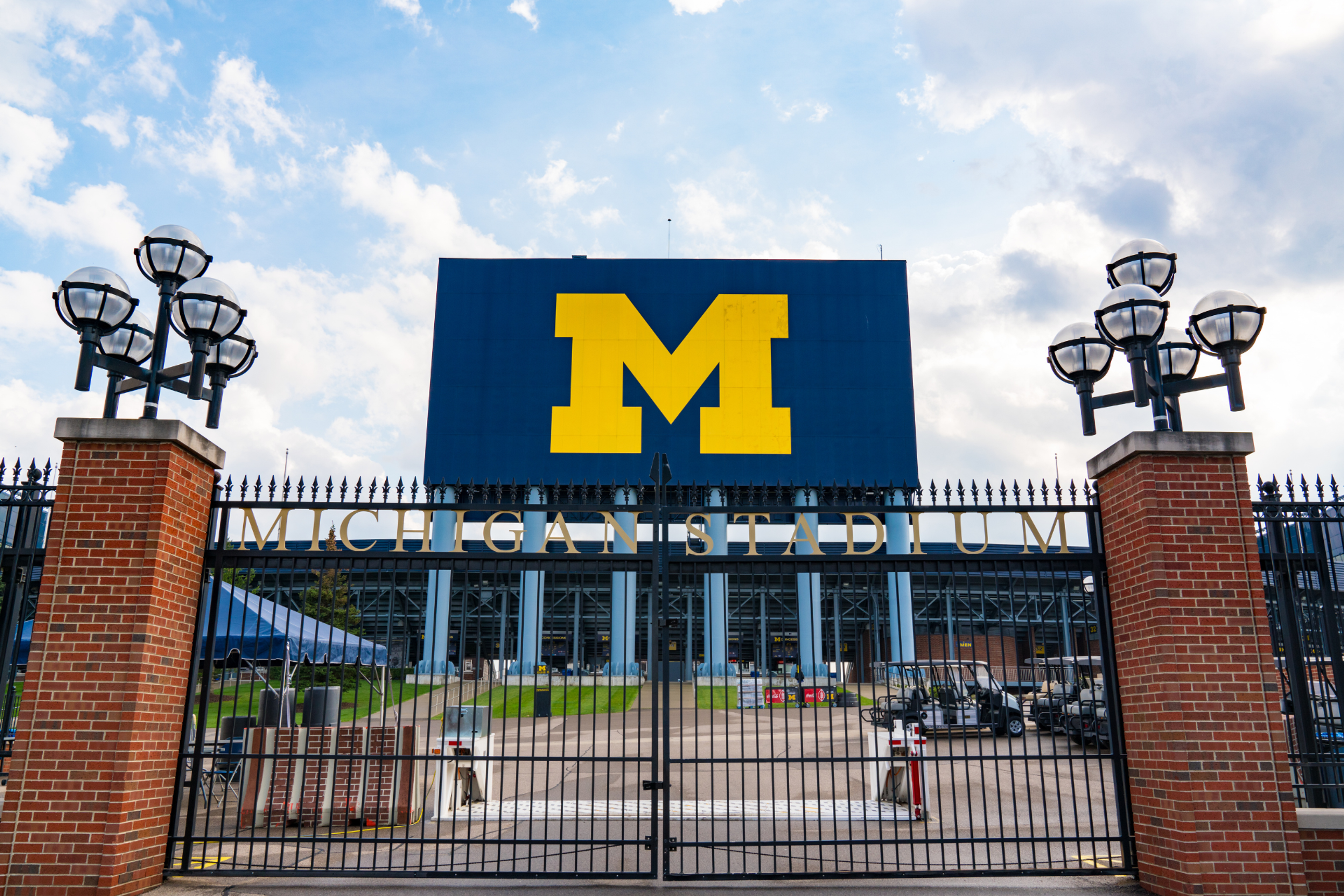University of Iowa Acceptance Rate (2024-2025) — Breakdown & Analysis
Discover the University of Iowa acceptance rate for 2024-2025 and gain insights into admission trends, average test scores, and GPA requirements. Learn about the admissions process, campus life in Iowa City, and tips for prospective students
Posted March 6, 2025

Table of Contents
Securing a spot at the University of Iowa is a goal for many high school students, and understanding the University of Iowa's's acceptance rate is key for those aspiring to join this esteemed public university. Known for its strong programs in liberal arts, health professions, and biomedical engineering, the University of Iowa offers an academically enriching environment in the heart of Iowa City.
For prospective students, understanding the University of Iowa's admissions criteria is essential to improving their chances of acceptance. This article breaks down the university's acceptance rate, examining how it varies for in-state and out-of-state students, the average GPA and test score requirements, and tips for navigating the admissions process. By exploring these key aspects, you’ll gain valuable insights to help you join the ranks of enrolled students at the University of Iowa.
University of Iowa Acceptance Rate Overview
The University of Iowa acceptance rate currently stands at approximately 86%, reflecting its commitment to accessibility and academic opportunity. With a total undergraduate enrollment of over 21,000 students, Iowa maintains a balance between selectivity and inclusivity.
This relatively high acceptance rate means the university evaluates students holistically, looking beyond just numbers to assess their potential contributions to the campus community. The admissions process considers factors such as:
- High school GPA (weighted and unweighted).
- Standardized test scores (optional for 2024-2025 but encouraged for some programs).
- The strength of the high school transcript (including honors, AP, or IB coursework).
- Personal statements and extracurricular involvement.
Need help navigating the university of Iowa's admissions process? Working with an expert coach from Leland can provide you with personalized guidance and insights to craft a standout application. Our coaches have a proven track record of helping students achieve their academic goals, offering support with essay writing, interview preparation, and application strategy. Ready to increase your chances of becoming a Hawkeye?
Get started with a Leland coach today!
In-State vs. Out-of-State Acceptance Rates
The University of Iowa's in-state acceptance rate is approximately 90%, while the out-of-state acceptance rate stands at about 78%.
The University of Iowa welcomes students from everywhere while staying true to its Iowa roots. The newest freshman class shows this balance clearly - 54% of first-year students (2,777) call Iowa home. The university's reach extends to:
- 92 of Iowa's 99 counties
- 45 U.S. states and territories (including Washington, D.C.)
- 40 different countries
Historical Trends
The University of Iowa has maintained a consistent acceptance rate over the years, reflecting its balance between accessibility and selectivity. While the overall Iowa acceptance rate remains high at approximately 86%, this figure varies between in-state applicants and out-of-state students.
Here’s a breakdown of the University of Iowa acceptance rates by year:
- 2016-2017: 85%
- 2017-2018: 84.5%
- 2018-2019: 84%
- 2019-2020: 84%
- 2020-2021: 83.9%
- 2021-2022: 84%
- 2022-2023: 84%
- 2023-2024: 84%
Unlike some universities experiencing significant fluctuations, the University of Iowa admissions process has remained stable, thanks to its commitment to serving a diverse group of students, including Iowa students, out-of-state students, and international students.
The high acceptance rate reflects Iowa’s focus on providing access to quality education through a holistic evaluation process that considers high school GPA, test scores, personal statements, and involvement in student activities. However, specific programs like biomedical engineering, health professions, and related clinical sciences may have more competitive admission criteria due to limited spaces and specialized curricula.
What Factors Influence Admission at Universitythe Gof Iowa?
Want to become part of the Hawkeye community? The University of Iowa looks at several factors to assess each applicant's chance of success.
Academic Performance
The RAI (Regent Admission Index) forms the foundation of Iowa's admission decisions. Students need a score of 245 or higher for Iowa residents and 255 or higher for out-of-state students. The RAI score comes from:
- High school GPA (weighted or unweighted)
- Number of core subject courses completed
- ACT composite score or SAT equivalent
Students must complete these core subject requirements:
- 4 years of English
- 3 years of mathematics (including Algebra I, II, and geometry)
- 3 years of social studies
- 3 years of science
- 2 years of a single-world language
What Test Scores Are Needed for Admission to the University of Iowa?
Standardized test scores play an important role in the University of Iowa admissions process, though the university has adopted a test-optional policy for the 2024-2025 academic year. While not required, submitting an ACT score or SAT score can strengthen your application, particularly if your GPA is on the lower side or if you’re applying for competitive programs like biomedical engineering or health professions.
- Average SAT Score: The middle 50% range for admitted students is 1120-1340 on the 1600 SAT scale.
- Average ACT Score: Admitted students typically score within the 22-29 range, with the average ACT score being around 25.
These scores indicate that Iowa values applicants who can demonstrate strong academic abilities in addition to their coursework. Submitting test scores can be especially beneficial for out-of-state students or applicants to selective programs, where competitive standardized test scores may help differentiate you from other admitted applicants.
If you’re planning to submit your scores, make sure they align with Iowa’s middle 50% ranges. Need help preparing? Here is a list of free resources to take advantage of.
Essays and Recommendations
Personal statements are vital in the admission process, especially if you don't submit test scores. Your statement needs to:
- Show information not found in your application or transcript.
- Display your writing skills.
- Tell your unique story and experiences.
Letters of recommendation can improve your application though they're not required. Strong recommendations help even more when you're applying to competitive programs.
Application Process and Deadlines
Ready to become a Hawkeye? Here's a complete guide about dates and requirements for your University of Iowa application.
University of Iowa Admission Dates (2024-2025)
These deadlines will help you plan your application timeline:
- Application Opens: August 1
- Early Action Priority Deadline: November 1, 2024
- Spring Semester Application Deadline: November 15, 2024
- Summer Session Application Deadline: May 1, 2025
- Fall Semester Application Deadline: May 1, 2025
Some programs have different deadlines:
- Business Direct Admission: March 1
- Nursing Program: March 1
- Pharmacy: December 1
Required Materials
Your application package needs these documents:
- Official high school transcripts (including senior year courses)
- ACT or SAT scores (optional, but may be needed for certain scholarships)
- ACT code: 1356
- SAT code: 6681
- College transcripts (if you've taken college courses)
- Personal statement (if applying test-optional)
Application Fees and Waivers
Here’s the breakdown of fees:
- Domestic undergraduate students: $55 (non-refundable)
- International students: $80 (non-refundable)
Domestic students can get fee waivers if they:
- Participate in free/reduced lunch programs.
- .Enroll in federal programs for low-income students
- Receive public assistance
- Face financial hardship due to extenuating circumstances.
Note for International Applicants: Fee waivers are available only to international students graduating from a U.S. high school. You can submit your application through either the University of Iowa application or Common Application (fall session only).
Submit your application by November 1 for maximum scholarship consideration and priority processing. This early action deadline will give you the best chance to join our Hawkeye community and access all available opportunities.
Strategies to Improve Your Chances of Admission to the University of Iowa
Want to increase your chances of becoming part of the Hawkeye family? Here are proven strategies that will make your University of Iowa application stronger.
- Have your bases covered with a strong academic profile. This means you should get good grades throughout high school and as high of a test score as possible. If you’re earlier on in high school, challenge yourself with rigorous coursework like AP classes that will give you a higher weighted GPA. If your GPA is on the lower side, it’s extra important that your test scores are great and vice versa.
- Write really good essays. The essays are your one chance to show who you are as a person and a potential future Hawkeye. Get specific—your essays should reflect your unique experiences, values, and goals, making them applicable only to you. Think carefully about the kind of student and community member you’re portraying through your writing. Highlight why the University of Iowa, with its strengths in liberal arts, health professions, and biomedical engineering, is the perfect fit for your aspirations.
- Show leadership and initiative in your extracurricular involvement. Show leadership and initiative in your extracurricular activities. At the University of Iowa, it’s less about being a jack-of-all-trades and more about showcasing a specific area where you excel and can make an impact on campus life. Admissions officers are drawn to applicants who demonstrate creativity, leadership, and the ability to make a difference, whether that’s through founding a club, excelling in a sport, or contributing to community service.
They’re asking themselves, “Will the University of Iowa be a better place with this student on campus?” Highlight how your involvement aligns with Iowa’s commitment to fostering a vibrant and diverse student body. Whether it’s through participation in student activities, organizations, or leadership roles, show how you’ll enhance the university’s culture in Iowa City.
Get Into the University of Iowa with the Help of an Expert College Admissions Coach
The college admissions processmight seem daunting, but you're not alone. The University of Iowa provides expert guidance through our dedicated admission counselors and career development advisors. For students looking to boost their chances of admission to the University of Iowa, focusing on academic excellence, writing compelling essays, and showcasing unique experiences and qualities is key. By carefully navigating the admissions process and meeting all deadlines, applicants can present their best selves to the admissions committee.
With dedication and strategic preparation, any ambitious student can increase their odds of becoming a proud Hawkeye! Good luck on your journey to the University of Iowa, and remember—every step you take brings you closer to thriving in Iowa City and joining the ranks of Hawkeye Nation. Go Hawks!
Next, read:
- How to Pick the Best College for You
- How to Build the Best Extracurriculars for College
- How to Succeed During Your College Years
FAQs
What is the projected acceptance rate for the University of Iowa in 2025?
- The acceptance rate for the University of Iowa in 2025 is anticipated to be around 84.7%.
How selective is the University of Iowa in its admissions process?
- With an acceptance rate of 84.7%, the University of Iowa admissions process is considered accessible for most qualified applicants. Strong academic performance and a complete application, including a high school transcript and any required materials, are key to success.
What is the minimum GPA requirement for admission to the University of Iowa?
- To be eligible for undergraduate admission, applicants must have a minimum high school GPA of 3.0 on a 4.0 scale. Iowa students and out-of-state students alike should aim to meet or exceed this threshold.
What GPA do most admitted students have at the University of Iowa?
- The average high school GPA of admitted students is 3.83, indicating that successful applicants typically rank near the top of their class and excel in challenging coursework. Weighted GPAs reflecting advanced courses such as AP or IB programs further enhance competitiveness.
What standardized test scores are required for the University of Iowa?
- Applicants can submit SAT scores or ACT scores as part of the admissions process, though test-optional policies may apply depending on the academic year. For those submitting scores, a SAT score near the 75th percentile or a strong ACT score can strengthen an application.
What programs are popular at the University of Iowa?
- The University of Iowa offers a variety of notable programs, including those in health professions, liberal arts, biomedical engineering, and social sciences. Students also benefit from related support services, robust student activities, and vibrant campus life in Iowa City, IA.
By understanding these University of Iowa admissions stats and preparing a strong application, prospective students can improve their chances of joining the Hawkeye family in Iowa City!



















